SOLIDARITY CENTER

WORKER RIGHTS WORLDWIDE
25 YEARS SUPPORTING GRASSROOTS MOVEMENTS, WORKERS AND TRADE UNIONS ON THE FRONT LINES OF DEMOCRACY ANNUAL REPORT 2022

THE SOLIDARITY CENTER IS THE LARGEST U.S.BASED INTERNATIONAL GRASSROOTS WORKER RIGHTS ORGANIZATION. WE PARTNER WITH WORKERS AND THEIR COMMUNITY-BASED ORGANIZATIONS TO PROMOTE AND DEFEND WORKER RIGHTS WORLDWIDE.

WE BELIEVE THAT WORKER RIGHTS ARE HUMAN RIGHTS.
THANK YOU FOR HELPING TO EMPOWER WORKERS TO RAISE THEIR VOICE FOR DIGNITY ON THE JOB, JUSTICE IN THEIR COMMUNITIES AND GREATER EQUALITY IN THE GLOBAL ECONOMY.
Copyright by the Solidarity Center 2022
Design:
States
All rights reserved. This publication is printed in the United
by union labor
Editors: Carolyn Butler, Tula Connell, Kate Conradt, Therese Dang, Arina C Lester
the cover: Bangladeshi women participate in a courtyard meeting to raise awareness on labor laws organized by Solidarity Center at Narendrapur, Jessore, on September 24, 2020.
and
Therese Dang, Arina C. Lester On
Photo: Juthika Dewry Gayatree
Sakib Pratyay

25-26 CLIMATE JUSTICE 27-28 C190 CAMPAIGN & END GBVH 29-30 PLATFORM CAMPAIGN 31-32 THE ILAW NETWORK SOLIDARITY CENTER TIMELINE LETTER FROM THE EXECUTIVE DIRECTOR & BOARD CHAIR OUR IMPACT PARTNER SNAPSHOT T A B L E O F C O N T E N T S LABOR RIGHTS: THE MOST FREQUENTLY VIOLATED SET OF HUMAN RIGHTS REGIONAL OVERVIEW AND SPOTLIGHTS 15-16 AFRICA 17-18 AMERICAS 18-19 ASIA 20-21 EUROPE 21-22 MIDDLE EAST & NORTH AFRICA INITIATIVE SPOTLIGHTS SPECIAL THANKS 1 3 5 6 7 11 25 33 36 OUR FINANCIALS AND PUBLICATIONS POWER-BUILDING: TRANSCENDING NATIONAL BOUNDARIES 9 OUR WORKER-CENTERED APPROACH 13 COVID-19 RESPONSE 34 GLOBAL REACH LEADERSHIP AND STAFF 35 15
SOLIDARITY CENTER
& GLOBAL LABOR MILESTONES
25 YEARS DEFENDING WORKER RIGHTS
2001–2006 1998–2000 1995–1997

John Sweeney becomes president of the AFL-CIO

The Solidarity Center is established through a merger of AFL-CIO's four pre-existing labor institutes, the African American Labor Center, American Institute for Free Labor Development, Asian American Free Labor Initiative and Free Trade Union Institute


ILO Declaration on Fundamental Principles and Rights at Work is adopted
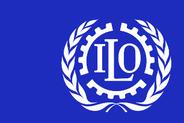
U.S. ratifies ILO Child Labor Convention, C182.

The International Trade Union Confederation (ITUC) is formed through the merger of the International Confederation of Free Trade Unions ICFTU and the World Confederation of Labor (WCL).


Solidarity Center leads effort to redefine trafficking in persons as forced labor.
Solidarity Center opens first new office in the Middle East and North Africa region
2006–2007
Solidarity Center becomes one of the founding members of the Cotton Campaign and the Alliance to End Slavery & Trafficking

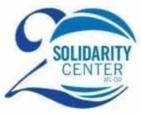
On International Human Rights Day, a coalition of human and worker rights NGOS and unions gathers 10,000 workers in a soccer stadium in Phnom Penh, Cambodia, the first time since the killing of labor leader Chea Vichea
2016
In February, the U S Senate passes an amendment (H.R. 644) to bar importation of goods made by convict, forced or indentured labor, closing a loophole in the Tariff Act of 1930 The Solidarity Center, as part of a coalition of civil society groups, advocated for this amendment and continues to advocate for enforcement of the Tariff Act in various supply chains
2017–2018

Solidarity Center celebrates its 20th anniversary marking a years-long internal transformation resulting in strategic shifts to redefine the organization's impact and vision
The International Lawyers Assisting Workers ILAW Network, a project of the Solidarity Center, is founded Today the network has 800-plus members

Ayuba Wabba becomes the first African president of the International Trade Union Confederation
2019 2019
The Solidarity Center supports trade union women leaders from 16 countries for negotiations at the UN International Labor Organization Conference in June to codify Convention 190 as a binding treaty to end violence and harassment in the world of work A global ratification campaign codriven by the Solidarity Center begins.
In Lesotho, the Solidarity Center partners with local trade unions and women's rights groups, global fashion brands (Levi Strauss, The Children’s Place and Kontoor Brands) and international rights organizations to establish the first legally binding agreements against systematic gender-based violence and harassment (GBVH) at four Lesotho factories affecting 10,000 workers

TIMELINE
1
2013–2014 2011–2012 2008–2010
TheSolidarityCenterpublishes "TheTrueCostofShrimp,"which detailstheexploitationofshrimpprocessingworkersinBangladesh andThailand(2008)resultingin anin-depthinvestigationofthe abuseandpracticeswithinthe entireseafoodindustryand supplychain Hondurasframeworkagreement, supportedbytheSolidarity Center,issignedwithFruitofthe Loom;1,200workersrehired



Workers play a central role in the Arab Spring; Solidarity Center partner in Tunisia, the UGTT, coawarded the Nobel Peace Prize.
Historic grassroots-led negotiation and adoption of first ILO Convention on Decent Work for Domestic Workers
The Solidarity Center undertakes the first major living wage study in Haiti (2011).
UndertheBangladeshAccord usheredinbythe2013RanaPlaza garmentfactorycollapse,Solidarity Centertrainsmorethan5,000 workers
SolidarityCenterwiththeAFL-CIO facilitatesmeetingsintandemwith theU.S.-AfricaSummit.Union leadersfrom11countriesstress theneedforgoodjobsasapriority intradeandinvestmentdecisions. WithSolidarityCentersupport, farmworkerswinthefirst bargainingagreementinMorocco topromotegreaterrightsfor womenworkingincommercial agriculture.
2015-2016
Bader-BlautestifiesbeforetheU.S. SenateForeignRelations Committeedetailingthe importanceofworker-driven solutionstoeradicatemodern-day slavery,buildingon20yearsof staffandpartnerknowledge


Participantsatthe2016Coalition ofBlackTradeUnionists(CBTU) conventionjointheSolidarity Centertocelebrate20yearsof workingtogether,includingto eliminateracismagainstAfrodescendantsintheworkplaceand throughoutsocietyinBrazil

2020 2020–2021 2022 2022
SolidarityCenterrapidly respondstotheCOVID-19crisis reimaginingorganizingand capitalizingonopportunitiesfor changethroughtargeted campaignsandonline organizinginsupportof essentialworkers

MurderofGeorgeFloydinspires worldwidesolidarityactionsof theBlackLivesMatterand globallabormovements
SolidarityCenterinitiatesits ClimateJusticeandJust TransitionProgram.

SolidarityCenterunionpartnersin Belarusrallyonthefrontlinesofa popularuprisingagainsttheir increasinglyrepressivegovernment
Myanmarwomengarmentworkers, longsupportedbytheSolidarity Center,areamongthefirsttostand upforfreedomafterthemilitary stagesacoupd'etat.
TheU S DepartmentofLabor announcesaglobalinitiative M-POWER ofgovernments,unions, civilsocietyandfoundationsto promoteworkerempowermentand rights
SolidarityCenterpartnerLabor Initiativessupplieslegalandother assistancetoworkersandunions, andhelpstelltheirwartimestories
TheCottonCampaign which includestheSolidarityCenter declaressuccessinitsyears-long fightagainststate-imposedforced laborinUzbekistan’scottonharvest.

Thaigarmentworkerswinahistoric $8 3millioninbackpaywithlegal supportfromtheSolidarityCenter andjointadvocacywithrights activists
ElizabethShuleriselectedthefirst womanAFL-CIOpresident Inafirst,thenewindependentunion, SindicatoIndependienteNacionalde TrabajadoresyTrabajadorasdela IndustriaAutomotriz,withSolidarity Centersupport,winstherightto represent6,000-plusworkersata truckplantinMexico,defeatingthe entrenchedcorporateunion.
22countrieshaveratifiedILOC190 followingpressurebyunionwomen andmen,andboostedbySolidarity Center'sworldwidecross-movement efforts.
Shawna Bader-Blau becomes Solidarity Center executive director.
2
Letter from the Executive Director
As crackdowns on fundamental civil rights intensify around the world, workers and their unions are often the first targets Over the past year, protests or strikes in Ecuador, Cambodia, Haiti, Iran, Sri Lanka and Sudan among others were met with statesponsored repression In Belarus, the government dismantled unions and imprisoned their leaders, while Hong Kong’s pro-democracy activists marked the 25th anniversary of the transfer of sovereignty from Britain to China from hiding, exile or jail.
However, with their collective strength, workers and their movements have proven to be the largest force for protecting democracy. Our partners in Ukraine have worked nonstop to assist people displaced by war, turning their labor halls into refugee centers and donating their savings to relief efforts. Garment workers in Myanmar are risking their lives to fight a deadly regime. And in Brazil and Colombia, the labor movement and a broad coalition of social actors are leading efforts to rebuild a democratic future for all.
Meanwhile, thousands of Mexican factory workers defied the odds and formed independent unions, setting the stage for workers at more factories to stand up to corrupt company unions a victory for rights on the job and in communities
The Solidarity Center also marked a quarter century this year, supporting embattled workers, advocating and litigating for change, and celebrating worker rights advances in these troubled times
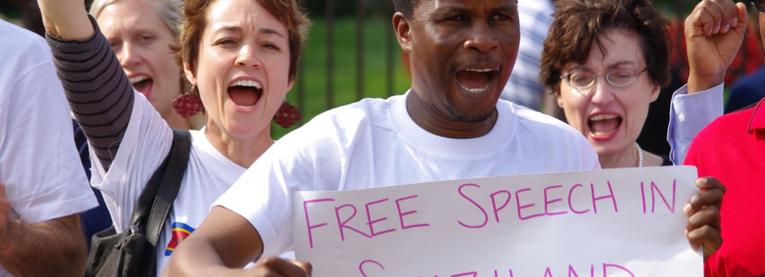
In 2022, we campaigned for greater social protections for essential workers and the rights of app-based drivers and delivery people We began to develop new virtual organizing tools and found ways to build power across movements and alongside workers in the informal economy. We joined a global campaign to get justice for rampant wage theft of migrant workers. We learned from the pandemic and adapted programs to openings created by COVID-19.
As we embark on the next 25 years, we are doubling down on our commitment to grassroots worker movements to fight societal injustices, such as gender and racial inequality; change laws to enshrine human rights; and strive toward climate justice and shared prosperity. We are raising our ambitions, accelerating our efforts and improving our coordination among partners and allies, tapping into the foundation of innovation and collective action we established over the last two years We will not rest until we see a new social contract that respects and protects working people And we will continue to push, with workers and labor movements around the world, against the tide of authoritarianism
IN SOLIDARITY,
In Solidarity,

3
SHAWNA BADER-BLAU
Greetings from Board Chair Elizabeth Shuler
Unions around the world show the power of solidarity every day Through the collective strength of workers, they tackle economic inequality, social injustices and attacks against democracy These threats know no borders
Which is why I am so proud of the work of the Solidarity Center and to chair its Board Through our dynamic and expansive network, the Solidarity Center is uniquely positioned to counter challenges, support grassroots movements and help build a better future for workers
For 25 years, the Solidarity Center has prioritized organizing, worker engagement and power, collective action and respect for fundamental rights, especially the right to form unions And it will continue to do so until the systemic inequality that characterizes the global economy is a thing of the past
IN SOLIDARITY, ELIZABETH SHULER
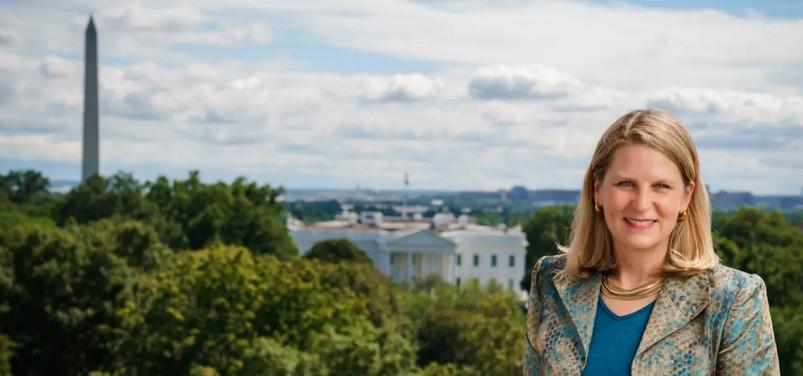 AFL-CIO PRESIDENT
SOLIDARITY CENTER BOARD CHAIR
AFL-CIO PRESIDENT
SOLIDARITY CENTER BOARD CHAIR
4
We reach 70 million people
The Solidarity Center, as part of the global labor movement, is proud to work with trade unions, civil society organizations, academic institutions, progressive private foundations, labor-friendly businesses, governments and dozens of generous individuals to fight for worker power on a worldwide scale. Their ideas and support fuel our collective action through cross-movement coalition building. They help us support, organize and elevate millions of worker voices and build stronger communities.

60+ Countries

1,000+ PARTNERS
88% LOCAL & GRASSROOTS PARTNERS
5
Our Impact
Partner Snapshot
With more than 25 years of experience as the largest U.S.-based international grassroots worker rights organization, we have built deep trust and a strong reputation with more than 1,000 partners Unlike many international organizations, the Solidarity Center works directly with partners providing long-term technical and capacity assistance, from supporting independent worker organizations' first efforts to organize to helping them build collective worker power across borders, representing thousands of worker voices. As a result, we are uniquely positioned to quickly identify trends for working people and opportunities for change and cross-movement building.
We are proud to work with 1,000 partners, including 500 trade union partners. Eighty-eight percent of our partnerships are with grassroots groups fighting for worker rights.
500+ TRADE UNION PARTNERS 1,000 PARTNERS
250+ CIVIL SOCIETY ORGANIZATIONS
$10 MILLION IN SUBGRANTS FOR GRASSROOTS LABOR PARTNERS
NEW WORKER RIGHTS PARTNERS
25 YEARS OF LONG-TERM PARTNERSHIPS IN TRUE SOLIDARITY
The majority of Solidarity Center grants go to smaller, local labor movements in dozens of countries. We strategically provide capacitybuilding training depending on the partners' needs at all stages of growth, and support grassroots organizing efforts as part of our workercentered approach.
In 2022, the Solidarity Center supported the formation of 23 grassroots worker rights organizations.
New Partner Spotlight
In 2022, the new independent union, Sindicato Independiente Nacional de Trabajadores de la Industria Automotriz (SINTTIA), overwhelmingly won the right to represent more than 6,000 workers at a truck plant in Silao, Mexico, in a closely watched election. SINTTIA defeated the entrenched and corporatist CTM which had held the contract at the plant for 25 years despite vote-buying attempts, worker intimidation and threats of violence against union leaders and activists.
0 200 400 600 Labor CivilSocietyOrganizations Government Academia
6
A WORKER-CENTERED APPROACH: INNOVATING WITH AND WITHIN THE GLOBAL LABOR MOVEMENT
Grassroots, Democratic, Worker-Controlled Organizations
At the core of the Solidarity Center's work is the belief that worker rights are human rights. Since our beginnings in 1997, the Solidarity Center has been a global leader in the promotion and defense of workers' human rights. Our work has been guided by the idea of true international solidarity, empowering workers everywhere. We believe this is best accomplished by workers themselves, coming together in inclusive, grassroots, democratic, workercontrolled organizations capable of organizing and mobilizing workers for collective action to bargain with governments and employers.
We support unions led by workers, not on behalf of workers. These are organizations where all workers have a voice and exercise their agency, acting on their own behalf for just wages, work with dignity and a better future for themselves, their families and communities.
The Solidarity Center ensures the centrality of worker self-organizing and worker leadership in all of our programs, requiring alignment of our partnerships with our vision and values, and constant reflection on our programs.
Building Collective Action and Political Power
As part of Solidarity Center's broader effort to amplify worker voice, we strive to secure freedom of association, collective bargaining and enforceable worker rights for all workers, their families and communities everywhere. The Solidarity Center together with our partners in the global labor movement collectively develops new approaches to organize and reach workers who have been traditionally excluded from labor law or union membership and denied benefits guaranteed in collective bargaining agreements. This includes seeking formalization of employment and legal protections for all workers.
This is addressed twofold: by boosting capacity for worker-led organizations to gain greater bargaining power in their workplaces, and increasing their political power in policy arenas at local, national, regional and international levels.
Our work on uplifting worker voices in political spaces is driven by a proactive legal agenda for worker justice.
7
Upholding Democratic
Independent unions are critical to defending individual and worker rights and often provide workers' with their first taste of democracy. On-the-job experience with elections that result in representation of their voices and needs is the forerunner to civic participation and helps democratize economic power, especially in global supply chains.

This is particularly important during a time of closing civic space, growing economic injustice and increasing inequality, racism, misogyny and xenophobia exacerbated by the COVID-19 pandemic and war. Authoritarian regimes and many employers are leading vicious attacks on worker and fundamental human rights.

In the face of these trends, the Solidarity Center—through broad alliances with other social movements and across civil society stands ever more firmly for racial and gender justice, inclusion and the full realization of worker rights for all. The Solidarity Center, with and within the global labor movement, will fight efforts by governments and corporations to close civic space by intentionally forming alliances and integrating worker issues into broader civil society platforms.
The Fund for Solidarity
The Fund for Solidarity provides crucial emergency and modest innovation funding to grassroots partners within the global labor movement, focused in the Global South. Since the Solidarity Center's beginning and in true international solidarity, we have always provided emergency funding to support union survival during crises, such as humanitarian aid for displaced people affected by Russia's invasion of Ukraine and support of union leaders threatened by local governments.
The Solidarity Center has seen a spike in the need to provide flexible financial support to worker rights activists over the last decade, demonstrating the increasingly difficult situation that they, as human rights defenders, face. These funds often provide a lifeline to trade unionists who may not be eligible for traditional rights defender grants. Additionally, the Fund for Solidarity has supported strategic innovative projects, such as power-building and advocacy efforts within the informal economy and climate initiatives driving grassroots social change.
8
Labor Rights: The Most Frequently Violated Set of Rights
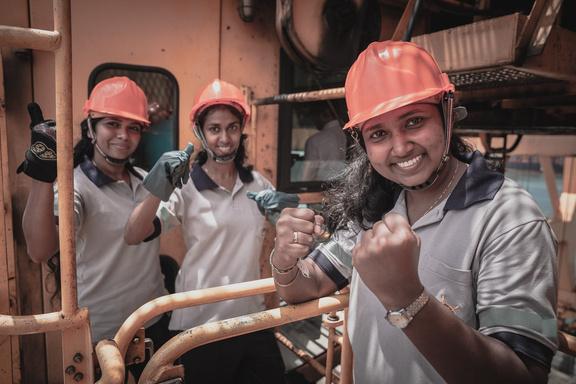

The global erosion of democracy and crackdown on social movements worldwide have dominated the news in recent years, from the war in Ukraine to the attacks on and suppression of civil societies in Belarus, Colombia, Ethiopia, Hong Kong, Myanmar and Russia What has been less visible are the intentional attacks on unions and worker rights in those and many other countries
Unions have long been recognized as critical to building a strong middle class. However, their role in maintaining strong democracies through member engagement and representation, building and mobilizing grassroots coalitions, promoting diversity within their ranks and leadership, and their function as counterweight to corporate power is underappreciated. Around the world, trade unions resist closing space and anti-democratic and anti-worker policy, often to their great peril.
According to the International Trade Union Confederation, unions and workers faced numerous threats in 2022:
COUNTRIES WHERE TRADE UNIONISTS WERE MURDERED
Bangladesh, Colombia, Ecuador, Eswatini, Guatemala, Haiti, India, Iraq, Italy, Lesotho, Myanmar, Philippines, and South Africa
UNRESOLVED ASSASSINATIONS IN COLOMBIA
Colombia is the DEADLIEST country for workers with 13 unresolved assassinations, six murder attempts and 99 death threats in 2022 alone.
Core labor rights include: the right to form unions and collectively bargain; the right to freely speak, assemble and associate; the right to strike; the elimination of discrimination in employment; and freedom from child and forced labor. These rights are critical to defending and upholding democracy, and also are delineated in the International Bill of Human Rights.
PERCENT OF COUNTRIES VIOLATED RIGHT TO STRIKE
COUNTRIES WHERE WORKERS WERE EXPOSED TO VIOLENCE
1,500+KILLED
12,000 IMPRISONED
Garment workers and other protesters leading pro-democracy marches in postcoup Myanmar faced systematic violence; unions and their leaders were targeted for additional repression.
WORST COUNTRIES FOR WORKING PEOPLE
Bangladesh, Belarus, Brazil, Colombia, Egypt, Eswantini, Guatemala, Myanmar, Philipines, and Turkey.
EGYPT
Workers remain deprived of their right to form and join unions since the arbitrary dissolution of all independent unions in 2018
9
We have been witness to some of the most grotesque repression these past two decades in the global solidarity movement. So, why do we the global labor movement fight in the face of this? Because the most disenfranchised people are able to gain economic inclusion and equity because of labor rights. Advocating through the use of collective action and our collective voice for livable wages and health insurance means we are simultaneously fighting for the right of the poor and working people to have a life with dignity. And what is democracy if it doesn’t deliver a decent life with dignity? The presence of unions in movement does not only serve to mobilize masses but to also infuse economic messages throughout the movement reflective of what real workers want.
-Shawna Bader-Blau, Solidarity Center Executive Director
BELARUS
Since 2020, all meetings, pickets and demonstrations organized by trade unions are banned by the government Leaders of the Belarusian Congress of Democratic Trade Unions and its affiliates have been detained or imprisoned.
PERCENT OF COUNTRIES VIOLATED THE RIGHT TO COLLECTIVE BARGAINING A TENET TO WORKPLACE DEMOCRACY
BRAZIL
COUNTRIES EXCLUDE WORKERS FROM THE RIGHT TO ESTABLISH AND JOIN TRADE UNION
Among them: informal-sector workers who comprise the majority of the world's employed people

In 2022, the situation of Brazilian workers worsened as their basic collective rights were regularly violated. Workers, especially those in the meat industry and health sector, saw health and safety measures weakened during the pandemic.
ACTIVISM IN EXILE
Trade union leaders are subjected to high-profile arrests as part of undermining the rights of workers to representation and active roles in democracy movements, e.g., Belarus, Cambodia, Hong Kong and Myanmar. The Solidarity Center supports grassroots trade union leaders often in exile or in safe houses where they are tapping into innovative organizing strategies that transcend national boundaries.
PERCENTOF COUNTRIES IMPEDED THE REGISTRATIONOF UNIONS
All countries in the Middle East and 91% of countries in Asia hindered registration of unions.
115
10
Global Reach
The Solidarity Center is active in more than 60 countries around the world, driving social justice initiatives for more equity for all on a global scale. Our work looks different in each country and is determined by the workers themselves. Some of the issues and sectors where we focus include:
Forced Labor
Forced labor, including child labor in Uzbekistan cotton fields, was eliminated after a years-long campaign by the Cotton Campaign a coalition of human rights, labor, responsible investor and business organizations, including the Solidarity Center. The campaign ended its call for a global boycott of Uzbek cotton after no systematic stateimposed forced labor was found in 2021 The Solidarity Center was a founding member of the campaign
Public Service
Hundreds of thousands of public employees transportation and electricity workers, workers at hospitals and day care centers across Tunisia won a 5 percent annual wage increase following a one-day nationwide strike and negotiations by the UGTT, a Solidarity Center partner, with the government.
Hospitality
In 2022, hundreds of casino and hotel workers at NagaWorld in Cambodia, the majority women, continued a year-long struggle for rights and fair pay despite their leaders being fired and jailed, and their peaceful strike violently repressed up by police
Shipping, Ports & Fisheries
After 600 Maldivian fishers from the Bodukanneli Masveringe Union (BKMU) mobilized to improve wages and working conditions, the government provided toilets and other facilities around the harbor to address health and safety issues.
Gender
Following years of intensive Solidarity Center-supported skills training, women leaders in Honduras led formation of unions and negotiations for 21 employment contracts that now cover 50,625 workers, primarily in the garment industry.
Food & Agriculture
Agricultural workers, including migrants, in Jordan collectively campaigned for and won a landmark law that will bring them safer jobs, overtime pay, 14 days of annual paid leave and 14 days paid sick leave. The workers, the majority of whom are women, also won 10 weeks paid maternity leave.
11
Apparel
In 2022, more than 1,250 Thai workers who sewed bras for Victoria’s Secret, Lane Bryant and Torrid and who were fired in 2021 without their legally mandated severance received $8 3 million in compensation following Solidarity Center legal support and advocacy
Informal Economy
Street vendors in Brazil, through the National Union of Street Vendors Workers (UNICAB), collected sufficient signatures from members of the Brazil National Congress to create a Parliamentary Front to defend informal traders’ rights, marking the first time they will be represented at the national level.
Manufacturing
6,000 workers formed an independent union at a GM auto plant in Silao, Mexico, voting out a union that did not operate in their interests This milestone victory helped set the stage for tens of thousands of manufacturing workers at seven plants to successfully form independent unions.
Mining
Women working in South African mines confront danger, violence and indignity in their work environments, where gender-based violence and harassment appears both widespread and normalized, according to a 2021 report from the Solidarity Center and South Africa-based Lawyers for Human Rights (LHR), which offered remedies to improve workplace safety for women
Gig Work
Climate Justice
The Solidarity Center seeks to highlight the impacts of the climate crisis on workers and enable unions to drive worker-responsive, inclusive climate solutions. In 2022, a Solidarity Center-supported report demonstrated how garment workers in Cambodia are already experiencing climate change and environmental degradation in their factories and communities
The Solidarity Center is working with app-based workers in more than a dozen countries, including in Kyrgyzstan, where gig workers at Yandex Go, a platform delivery service, formed a union and won economic benefits that reduce required fees and taxes.
Migration
Telecommunications
3,800 call center workers at Teleperformance in Tunisia won a 13 8 percent wage increase and other key gains after staging actions and planning a strike
The Solidarity Center works with numerous union and migrant rights organizations in coalitions such as the Justice for Wage Theft Campaign, leading to a crucial report with the migrant justice institute that found that migrant workers have few avenues to access justice for rampant wage theft.
12
Power-BuildingTranscending NationalBoundaries
At the heart of our work are workers and their organizations. We identify and unite labor leaders around mutual opportunities, regions and challenges, supporting our local partners to move out of isolation and transcend national boundaries. Here are a few powerful grassroots networks that fuel movements across the world.
Global
The ILAW Network
The International Lawyers Assisting Workers Network (ILAW Network) brings together more than 800 legal practitioners and scholars from more than 70 countries in an exchange of ideas and information in order to best represent the rights and interests of workers and their organizations
Global Labor Leadership Initiative (GLLI)
The Global Labor Leadership Initiative is an intensive leadership development program for labor organizers and leaders in the Global South and the broader movement for worker justice to unite and strategize around common challenges These learning initiatives center on transformative leadership, shifting power and grassroots power-building, with each leader developing a strategy. The first cohort included 27 local partner leaders.
Americas
Sectoral Coalitions
The Solidarity Center brings together leaders from diverse sectors to strategize and build collective power throughout the region, within specific sectors and for cross-sectoral for campaigns The sectors include agriculture, domestic work and apparel These sectoral coalitions effectively promote worker engagement
Labor Rights Defenders
The Solidarity Center fosters a network of labor rights defenders through a virtual information and training platform called REDAL. This hub serves as a free library of resources, hosts training courses and cultivates a community of practice. Through REDAL, workers and allied activists learn how to recognize, document and remediate labor rights violations. The platform spurs individual and collective actions in defense of labor rights in Colombia, Ecuador and Peru.
Middle East & North Africa
The Coalition for Dignity and the Rights of Women
This regional network is comprised of over 25 trade union and civil society activists from Bahrain, Egypt, Iraq, Jordan, Kuwait, Lebanon, Mauritania, Morocco, Palestine, Saudi Arabia, Tunisia and Yemen, strategically building power to advocate for governments to recognize the importance of ILO Convention 190.
Migrant Worker Network
The Solidarity Center's partners proposed an alternative labor migration model centering on migrant workers' freedom of association and incorporating migrant worker control over their visas with government oversight and employer accountability. The Migrant Worker Network region focuses on empowering migrant workers from MENA destination countries and Asian and African origin countries
13
Cross-Regional
ILO Convention 190 Campaign
Solidarity Center brings together women union leaders and allies from the human rights and feminist movements to work toward ratification and implementation of ILO Convention 190 This cross-movement building to prevent and address genderbased violence and harassment in the world of work strengthens workers' ability to advocate for this and other issues important to all workers.
The Tariff Act Advisory Group
Europe & Central Asia
The Cotton Campaign
Launched in 2007, when the Uzbek government was forcing more than 1 million children and adults to harvest cotton every year, focuses on intensive policy advocacy and campaigning to stop state-imposed forced labor in Central Asia cotton production.
Anti-Corruption Initiative
A regional resource hub based in Ukraine provides anti-corruption support for union leaders and activists, including whistleblowers.
Disability Coalition
A regional coalition of union, labor law experts and other CSOs works to improve legal frameworks and enforcement mechanisms to protect the rights of people with disabilities and build public demand for social change.
Africa
Building Anti-Racist Movements
Jointly with the Coalition of Black Trade Unionists, the Solidarity Center has created intentional spaces where racial justice activists and union leaders representing workers of color come together to build collective power and devise strategies to leverage their collective power for democracy , such as fostering voter education in Kenya.
Women Leadership to Combat
GBVH in the World of Work Solidarity Center conducts leadership training for women union leaders to convene and strategize for increased women leadership in unions and to conduct campaigns to combat GBVH at the workplace
Since 2020, the Solidarity Center, as part of a group of civil society organizations, has worked to monitor enforcement of Section 307 of the Tariff Act as an important tool to discourage forced labor by preventing the entry of goods made with forced labor into the United States. This coalition continues to drive policy advocacy with U.S. Customs and Border Protection and is committed to promoting Section 307 education and regulatory and enforcement efforts.
Asia
Sectoral Initiatives
The Solidarity Center connects workers and union leaders across various sectors at the regional level to devise strategies and find synergies for collective action and campaigns, such as in the garment industry.
End GBVH in the World of Work
Across Cambodia, Indonesia and Bangladesh, the Solidarity Center brings together women union leaders and allies in the fight GBVH through leadership training opportunities
14
Africa REGIONAL OVERVIEW AND SPOTLIGHTS
Workers in Africa struggle to exercise their fundamental rights. In 2022, nearly all countries violated workers' right to strike and to bargain collectively. They were met with violence in about one-third of countries for engaging in strikes and other actions, including physical assaults and the firing of rubber bullets by police, according to the International Trade Union Confederation. Workers were murdered in three countries: Eswatini, Lesotho and South Africa.
For years, the Solidarity Center's work in Africa has faced down the challenges of conflict, coups and anti-democratic and anti-labor governments. Throughout that time, our support for labor movements and rights activists has helped elevate the voices of marginalized workers including women, migrants and informal-economy workers as they struggled for equality, dignity and recognition.
The dearth of good jobs, climate change and conflict increase precarity, poverty and, increasingly, push people to migrate for work or safety. Our partner unions in Africa are working to develop national and regional strategies to influence economic, trade and other policy that impacts worker well-being, as well as mitigate conflict. They advocate for justice and democracy as strong and independent organizations in collaboration with other sectors of civil society and with an independent media
The informal economy accounts for 80 8 percent of jobs in urban Africa, particularly among youth and women, according to the International Labor Organization. The Solidarity Center centers its work around recognition of workers as workers and formalization of employment, which makes social protection programs, including health care, accessible, a problem that came into sharp relief during the pandemic. Connecting worker organizations and sharing the lessons and successes of union movements are core Solidarity Center strategies for bettering the lives of workers, their families and communities, and ensuring freedom of association in their respective countries
The Solidarity Center has programs in Botswana, Ethiopia, Eswatini, Liberia, Lesotho, Kenya, Nigeria, Sierra Leone, South Africa, Sudan, Uganda and Zimbabwe, with a focus on protecting and promoting freedom of association through support of democratic trade unions on the continent. Specifically, the Solidarity Center engages on issues related to fair and equitable trade, decent work, worker health and safety, gender equity, strengthening labor community alliances, and the opening and reopening of democratic space through the rule of law. The Solidarity Center also encourages trade unions to be active partners in free and transparent elections, strengthening labor movement leadership and advocacy as they fight for social and economic development
15
PARTNER HIGHLIGHT
HIGH RISK FOR LOW WAGES: NIGERIA RIDE-SHARE DRIVERS FIGHT FOR THEIR RIGHTS
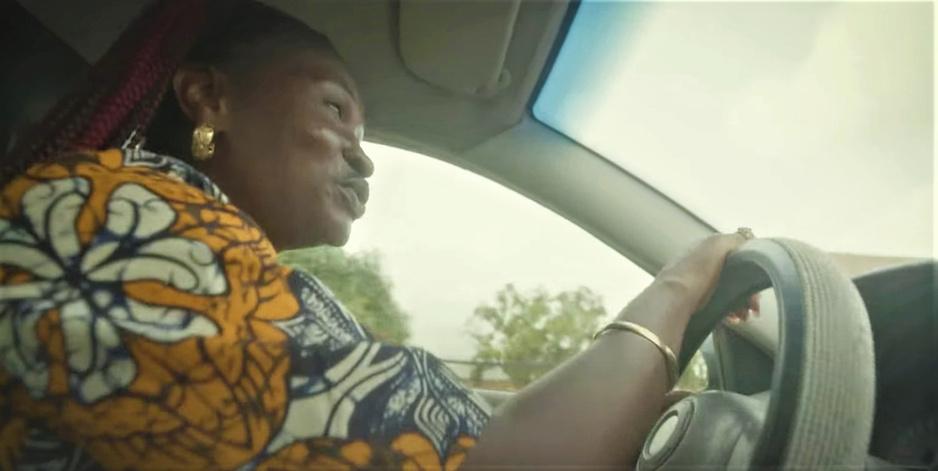
Althoughmostcountrieshavehard-wonlaborlaws,app-basedworkershavefew legalprotections,includingalivingwageInNigeria,wherethecostofgoodsand serviceshaveincreasedbymorethan200percent,rideshareworkerswenton striketodemandincreasedfaresandrecognitionasofficialemployeestoaccess theirrightsandbenefitsasworkers.
App-basedNigeriandrivers’unionsalsolaunchedaclassactionsuitagainsttwo internationalridesharingcompanies,demandingunpaidovertimeandholidaypay, pensions,socialsecurityandunionrecognition."Iwork15to18hoursaday,“says AyobamiLawal,aplatformdriverandmotherofthree.“ThemoneyIearnfrom drivingdoesnotreallysustainmyneeds”LawalisamemberoftheNationalUnion ofProfessionalApp-BasedTransportWorkers,aSolidarityCenterpartner.
TheSolidarityCenterispartofabroad-basedmovementindozensofcountriesto helpworkersintheinformaleconomycometogethertoasserttheirrights,protect theirlivesandimproveworkingconditionsandlivingstandards

REGIONAL PRIORITIES
Gender-based violence & harassment and discrimination
Strengthening the voice of workers in informal economy
Supporting efforts for free and independent media and journalism
Promoting anti-corruption and accountability
I'm working on right now is unity— trying to bring a lot of drivers on board to let them understand the power of uniting, like being together and talking in one voice.”
Ayobami Lawal, Nigerian platform driver
Workers' fundamental rights & freedom of association
Defending democracy through advocacy, crossmovements and coalitions
Ayobami Lawal, with the Nation Union of Professional App-based Transport Workers
VIDEO
“What
16
REGIONAL OVERVIEW AND SPOTLIGHTS
Americas
Across the Americas, union leaders often pay the ultimate price for exercising their fundamental rights to form and join unions. Colombia remains the deadliest country in the world for union leaders, with 13 murders in 2022. Unions in Ecuador, Guatemala and Haiti also lost members and leaders to violent assaults, including a 35-yearold primary school teacher in Guatemala, according to the International Trade Union Confederation. Meanwhile, workers experienced violent attacks in nine countries in the region. Those who perpetrate violence and repression against workers and unions are rarely brought to justice
Independent and democratic trade unions are a key actor in civil society and a cornerstone of open societies. In the Americas, unions face hostile employers and governments and legal frameworks that hinder the exercise of their rights and democratic practices. Labor movements have long felt these pressures, including repression of freedom of association, and the majority of the countries in the region violated the right to strike in 2022. Workers also face high informality and a stunning range of employment contracts designed
to exclude them from not only unionization but also from access to social protection programs.
All these challenges were exacerbated by the COVID-19 pandemic, and some governments moved to restrict basic freedoms and tried to boost the economy by reducing labor rights and protections. Moreover, in many countries, the lack of protection and respect for basic freedoms and human rights, systemic corruption and widespread inequality reduced access to decent work. These trends disproportionately affected migrants, women, youth, Afro-descendants and Indigenous populations
The Solidarity Center has programs in Brazil, Colombia, Costa Rica, Ecuador, El Salvador, Guatemala, Haiti, Honduras, Mexico, Nicaragua, Peru and Venezuela, where it supports independent unions at a time when they represent one of the few institutions where all working people can exercise free expression, a sense of solidarity with others similarly situated, and contribute to the defense of human rights and prevent democratic backsliding.
PUBLICATION Bargaining for Decent Work and Beyond: Transforming Work and Lives Through Collective Bargaining Agreements in the Honduran Maquila Sector

A Solidarity Center 2022 report shows that workers in Honduras with collective bargaining agreements are less likely to feel compelled to migrate or to face verbal abuse, and earn more than workers without collective bargaining agreements. Read the report here.
“In Honduras, we have an advantage of collective bargaining ... The difference between manufacturing companies without collective bargaining and textile factories is huge We think it is important to synchronize this type of report with the fight for freedom of association and collective bargaining ”
Eva Argueta, General Workers Central (Honduras) Representative and Maquila Organizing Project Coordinator
17
ThousandsofworkersinMexicoformedanindependentunionataGMauto plantin2022,votingoutacorporate-supportedunionthatdidnotoperatein theirinterest.
MariaAlejandraMoralesReynoso,generalsecretaryofSINTTIA,theunionthat nowrepresentstheworkers,saysworkersattheplantstoodstronginthefaceof widespreadcorruption,lawstiltedagainstthemandincrediblepressuretocast theirvoteforaprotectionunionthatdidthebiddingofthecompany.Theunion victory“gavepeoplehope,hopethatitwaspossibletorepresentworkers freely,”saysMorales,thefirstwomanpresidentofanautoworkerunionin Mexico.“Weprovedit’spossibletogetorganizedandtofightforourrightsand toleavebehindthefearthatwe’regoingtoloseourjobs”

Thevictorypavedthewayforworkersatsixothermanufacturingplantstoform independentunionsinthemonthsfollowingSINTTIA’svictory.Listentothe podcasthere
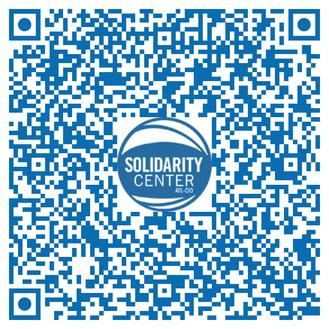
“We proved it’s possible to fight for our rights and to leave behind the fear that we’re going to lose our jobs.”
Alejandra Morales Reynoso, SINTTIA general secretary
PARTNER HIGHLIGHT K VICTORY
Migration Informal economy
Alejandra Morales Reynoso: SINTTIA general secretary
PODCAST
GBVH programs for garment factories
Engagement with historically marginalized populations Social protectionhighting for a new social contract Increasing union membership 18
REGIONAL PRIORITIES
Asia REGIONAL OVERVIEW AND SPOTLIGHTS
The Asia-Pacific region is the second worst region in the world for worker rights in 2022, according to the International Trade Union Confederation Workers experienced violence in 10 countries and were detained or arrested in 19 countries. Striking workers in Bangladesh, Cambodia and India were met with police brutality, sometimes fatal. Egregious human rights abuses perpetuated by a military junta continued unabated in Myanmar, where union members, many of them women, have been targeted for violence or murder. Other countries where workers were murdered in 2022 are Bangladesh, India and the Philippines.
In 2022, Asia began to transition to a post-COVID19 world and lifted pandemic-prevention measures that made life difficult for workers and disrupted manufacturing and global supply chains. During the pandemic, governments used these measures to stifle organizing and freedom of association, and erode trade union freedoms, worker rights and democratic standards and practices. The government in Indonesia, for example, unilaterally curtailed labor rights and protections while suppressing or preventing public demonstrations opposing those cuts. The pandemic exposed and exacerbated political and economic inequities and instabilities throughout the region. In early 2022, governments in Sri Lanka and Pakistan collapsed following the economic crisis, which included dramatic declines in living standards
This year also saw a significant increase in worker advocacy and agency. Large protests and demonstrations, many led by unions and worker
rights organizations, brought people together to call for an end to government corruption and malfeasance and for the restoration and expansion of democratic rights and freedoms, many of which were curtailed during the pandemic. Unions and civil society partners adapted their organizing, communication and outreach strategies to organize new groups of workers and fight for worker health and safety. And app-based food delivery workers began to organize, including in Myanmar during the postcoup violence.
In Nepal and the Philippines, the Solidarity Center established new offices and programs to strengthen trade union advocacy and worker organizing at a time when political elections are bringing change to both countries In Thailand, Solidarity Center legal support and worker advocacy resulted in the largest financial settlement for workers in the global garment sector. The Solidarity Center also documented the negative impact of China's Belt and Road Initiative on labor rights, both for local and migrant workers.
The Solidarity Center has programs in Bangladesh, Cambodia, Indonesia, Malaysia, Myanmar, the Maldives, Nepal, Pakistan, the Philippines, Sri Lanka, Thailand and India, with a focus on promoting worker and union rights and freedoms, strengthening trade union resiliency, and promoting migrant worker rights and supply chain accountability The Solidarity Center recently registered in Pakistan and is excited to build on the previous work in advancing worker rights in the brick-kiln sector.
19
PARTNER HIGHLIGHT MYANMAR WORKERS STAND UP FOR DEMOCRACY!
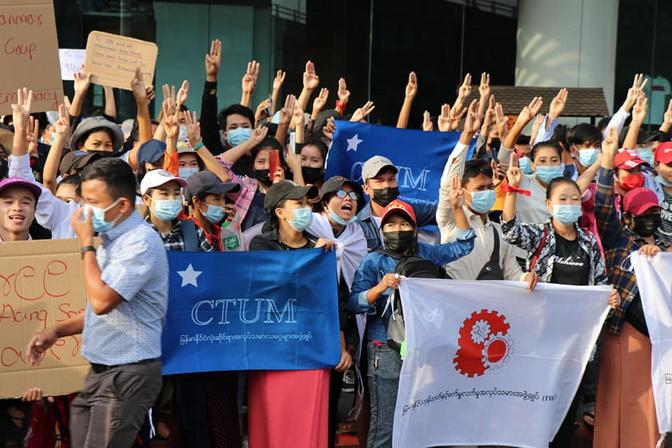


In February 2021, when Myanmar's military overthrew the country's democratically elected government, tens of thousands of people took to the streets, engaging in mass demonstrations, civil disobedience, work stoppages. The ensuing crackdown on protests led by workers, many of them women and union members, resulted in the deaths of a more than 2,500 people. At least 12,000 people are imprisoned, many tortured.
The military targeted union leaders, arresting dozens, and many have fled the country or are in hiding. The country's garment workers, most of them young women, were among the first to stand up to defend the right to a free and peaceful society and were especially active in organizing civil disobedience actions and shutting down factories
Because of their important role in standing for democracy, the government banned unions. Speaking from a safe house in military-controlled Myanmar, Phyo Sandar Soe, assistant general secretary of the Confederation of Trade Unions-Myanmar, describes how workers have been on the frontlines for democracy since the coup and says the international community can best help workers fighting for their rights by staying out of the country. Listen to the full interview through Solidarity Center's podcast here.
"We are facing a bloody crackdown, but all people protect each other. We are finding solutions to fight back."
— Phyo Sandar Soe, assistant general secretary of
the Confederation of Trade Unions-Myanmar
Gender-based
PODCAST
Member of the Confederation of Trade Unions-Myanmar stand strong in face of government repression
violence & harassment and discrimination
workers in the Informal Sector
fundamental rights & freedom of association
the work on the occupational safety and health
trade unions and worker rights activists operating under authoritarian regimes
leadership of marginalized groups in government and civil society
REGIONAL PRIORITIES Supporting
Workers
Support
Support
New
20
Europe and Central Asia REGIONAL OVERVIEW AND SPOTLIGHTS
The Russian military invasion of Ukraine has had profound effects on efforts to defend and strengthen worker rights across the region. Civil society organizations throughout Europe and Central Asia are under intense scrutiny by their governments The war also has had severe effects on household economics, with global inflation exacerbating household setbacks following COVID-19 shutdowns. The sanctions levied against Russia after its invasion of Ukraine have impacts on all countries in the region since their economies are closely connected. Most clearly, employment migration patterns that were first thrown into disarray by the pandemic are now affected by new migrations seeking to avoid sanctions or presumed future economic disruptions. Several sectors damaged by sanctions were also heavily unionized. Large job losses in these sectors cause a coinciding loss of union members, and subsequently the evaporation of dues funding. All these factors war, the pandemic, increased migration and economic disruptions produce fears that damage progress toward democratic systems and increase closing of civic space across the region, as workers and their families accept the word of autocrats who promise “stability.”
Solidarity Center partners in Europe and Central Asia face existential attacks on human rights that weaken the trade union movement through closing of civic space. Governments are using legal de-registration, restrictions on forming independent unions, “foreign agent” laws and bogus criminal charges against union activists to stifle freedom of association and dissent. Meanwhile the independent unions facing attacks are often poorly positioned to mount an effective response especially when their leadership is isolated in jail For example, the leadership of the Belarus Confederation of Democratic Trade Unions (BKDP) is in jail awaiting trial, and all BKDP-affiliated unions have been liquidated by the courts
Laws that threaten the ability of independent trade unions to form or operate freely are the norm in Central Asia, and laws throughout the region restrict workers' ability to obtain and retain work in line with international labor standards. Independent trade unions are some of the few genuinely democratic institutions that exist in many of the countries in this region, giving people the lived experience of electing representative leaders, collectively developing solutions to common problems and holding authorities accountable. In many countries, grassroots organizing is helping to restore working people’s faith in democracy. In Southeast Europe, where EU accession has stalled and human rights movements face backlash from extremist groups, key wins on wages, health and safety, and treatment on the job have given workers hope for an economically inclusive future they are building together.
In 2022, the Solidarity Center worked with unions in Albania, Armenia, Belarus, BosniaHerzegovina, Georgia, Kazakhstan, Kosovo, Kyrgyzstan, Montenegro, North Macedonia, Poland, Serbia, Ukraine and Uzbekistan to survive the impacts of the war, prioritizing the protection of labor rights and preserving internal union capacity, including stabilizing union finances and membership levels. Other work includes humanitarian and capacity-building support in Ukraine and engaging partners in neighboring countries like Poland to support displaced people; increasing the capacity of labor activists in Armenia and Kazakhstan to engage in national discourse on labor reform; and supporting migrant workers in Kyrgyzstan with mechanisms to address labor exploitation in destination countries. Across the region, the Solidarity Center is excited to expand its support for workers in app-based jobs to make their voices heard in the changing future of work.
21
PARTNER HIGHLIGHT IN MIDST OF WAR, UKRAINIAN PARLIAMENT ATTACKS WORKER RIGHTS

Even amidst the hardships of war, the Ukrainian Parliament passed a series of laws that attack workers’ basic rights on the job and undermine the ability of unions to freely function.
The move to take away good wages, job protections and union freedom occurred even as workers and their unions invested everything in aiding those affected by the war. Through the Solidarity Center-supported Trade Union Lifeline and partner unions, union members have provided humanitarian aid, collecting and distributing supplies such as clean water to distribute among internally displaced people throughout Ukraine. Union offices have become refugee shelters and some unions have even donated all of their funds.
Workers and their unions are standing strong, says George Sandul, a Kyiv-based labor lawyer with Labor Initiatives, a Solidarity Center partner. “The very crucial point here is to have this organization that we try to promote, like that Solidarity Center promoted before the war. Because the only hope for you is to join the big unions, the active unions that may defend your rights ” Listen to the podcast here
PUBLICATION
"This giant voluntary union movement, of which Labor Initiatives is proud to be a part, is the cornerstone for opposing any harmful labor law reform and promoting something good for workers, which will be good for the economy and for the rebuilding of Ukraine."
—George Sandul, Legal Director of Labor Initiatives
Roadmap to Justice: How Kyrgyzstan's and Kazakhstan's Platform Economy Workers Can Stand for Their Rights

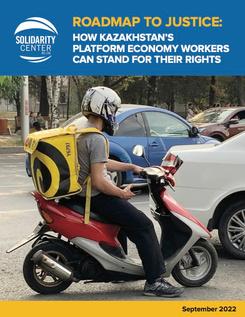
The digital platform share in the economy in Kyrgyzstan is growing, and with that growth, an increasing number of people are taking app-based jobs Kazakhstan has the most developed digital market in the region, and digital platform companies operate in its major cities. The vulnerability of workers in this sector has also become more apparent, especially for marginalized groups. Read both reports here or access them through the QR code.
REGIONAL PRIORITIES
Defending workers' fundamental rights & freedom of association in closing civic space
Anti-Corruption Coalition
Regional migrant workers justice
Gender-based violence & harassment and discrimination
Increase and maintain union membership as crucial part of civil society
Equality for workers with disabilities

PODCAST 22
Middle East and North Africa REGIONAL OVERVIEW AND SPOTLIGHTS
The Middle East and North Africa (MENA) region ranks as the most challenging in the world for working people, according to the International Trade Union Confederation, with systematic violations of the right to form unions, strike, collectively bargain and other fundamental freedoms guaranteed under international law
As MENA emerges from the COVID-19 pandemic, it has become clear that the crisis has weakened key institutions and left workers, particularly the most vulnerable, in greater precarity. Governments’ pandemic response measures have further eroded democratic institutions and economic and social rights in a region already characterized by restrictive civic space. Job losses and economic upheaval have accelerated employment trends toward precarious employment in the informal economy, gig employment through online platforms, and exploitative migration schemes. This has exacerbated existing inequalities, not only for women who have suffered disproportionate job losses but also among other vulnerable groups, such as migrants and people with disabilities Youth, who already faced high unemployment rates across the region, have also been adversely affected Systemic gender discrimination and longstanding restrictive social norms leave women workers more vulnerable to GBVH. Women's access to the labor market remains the lowest in the world. All the while, climate change is pressuring workers’ health and livelihoods with extreme heat, desertification and severe weather. Despite these challenges, governments in the MENA region continue to be incapable or unwilling to implement needed economic and political reforms or to address rampant corruption, further undermining democratic accountability and allowing workers to slip into greater precarity.
The Solidarity Center maintains extensive capacity-building programs in Algeria, Bahrain, Iraq, Jordan, Kuwait, Morocco, Palestine, Sudan and Tunisia, prioritizing the strengthening of independent unions to defend and expand freedom of association and fundamental worker rights In Sudan, relationships with independent unions and other labor rights organizations, including women's and informal economy rights organizations, have been developed The Solidarity Center supported unions in Iraq to ensure enforcement of the 2015 labor law, engage in social dialogue on economic policies and reform of the social security system, and improve labor law enforcement by training activists and union leaders. In Morocco, the Solidarity Center is partnering with the Moroccan Labor Union (UMT) on expanding into the platform economy and fighting for the rights of delivery workers. In Jordan, the Solidarity Center supports leadership and capacity building of the Domestic Workers Network, a grassroots network of migrant domestic workers and agriculture workers to protect their rights and expand social protections. Transnationally, the Solidarity Center has built a regional domestic worker network building coalitions of workers in destination countries and connecting them with trade unions and civil society organizations in countries of origin in Africa and Asia to address domestic worker rights, migrant women leadership, worker agency and collective power.
The Solidarity Center is excited to expand its regional work on fighting gender-based violence and harassment in the world of work and push for ratification of ILO C190. Other regional focus areas will be the enhancement of the rights of people with disabilities and climate justice initiatives centering worker voices.
23
JORDAN AGRICULTURE WORKERS WIN LANDMARK RIGHTS
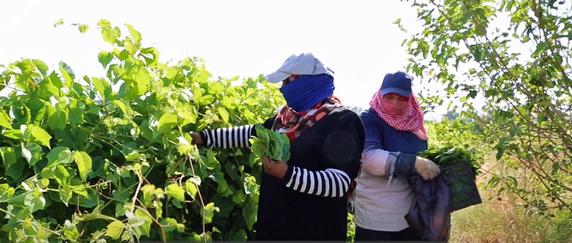
Agricultural workers in Jordan for the first time have fundamental protections on the job, including guarantees for safe and decent working conditions, following a two-year campaign by the Agricultural Workers Union in Jordan and its allies that resulted in passage of a historic regulation covering the sector The law applies to all workplaces that employ more than three agricultural workers, who nowwillreceive14daysannualpaidleaveand14dayspaidsickleave (or more, in cases of serious illness). Women are guaranteed 10 weeks paid maternity leave, and all workers can benefit from first-ever provisions for overtime pay. Significantly, the legislation also covers migrant agricultural workers, who frequently are not protected by a country’slaborlaws.
Of Jordan's 210,00 agriculture workers, more than half are women. Before women workers even arrive at the farms, women are subject to unsafe conditions on the packed vehicles they must use to get to work Some 86 percent say they have been involved in an accident on the commute, and 41percent say they have been subjected to sexual harassment and other forms of gender-based violence during the journey. Watch a video on the outcome of a study documenting the hazards women face commuting to the fields above, and listen to our podcastepisodehere
REGIONAL PRIORITIES
Gender-based violence & harassment and discrimination
New leadership of marginalized groups in government and civil society, particularly workers with disabilities and women workers
Regional migrant domestic workers
“This is quite a landmark in Jordan. It’s the first time this type of legislation has passed. Under the regulation, any provision not mentioned falls under purview of national labor code."
--Hamada Abu Nijmeh, Director of the Jordanbased Workers’ House for Studies
Social protectionfighting for a new social contract
Workers fundamental rights & freedom of association Climate justice


PARTNER HIGHLIGHT
PODCAST
24
The Climate Crisis and Workers
A Critical Issue of Local and Global Equity and Justice
As climate change worsens, workers, their unions and their communities face varied and mounting threats in a changing world and global economy Workers and their unions are uniquely positioned to strengthen a global climate justice movement, bolstered by their support for, and participation in, broad-based coalitions as well as long-term experience in people-centered policy and legislative advocacy In each case, the ability of workers to build power and collectively bargain and engage in other forms of collective action will determine the degree to which the future of work is safe, just and equitable. When unions effectively engage in advancing climate justice, the climate solutions that result can reduce inequality, advance democratic practices and enable a more just economy where communities are more resilient and all workers have access to decent work.
Climate change has already begun to impact workers and their communities, particularly those who have contributed least to the crisis. Workers in highly polluting industries face the dual impacts of occupational health and safety hazards and environmental degradation, both of which also put their larger communities at risk. Extreme heat severely impacts workers from
construction sites to farms, from factories to a wide range of occupations in the informal economy forcing them to choose between their health and their wages
Both the disastrous impacts like the calamitous floods in Pakistan and massive drought in Ethiopia in 2022 and more gradual effects, like the salinization of land in Bangladesh, push workers to abandon their traditional livelihoods and seek alternative sources of income, often migrating into low-wage jobs under precarious conditions As workers worldwide are impacted by climate change-related supply chain disruptions and energy crises through rising prices, it is increasingly understood that climate change impacts, even when indirect, affect workers in a multitude of consequential ways
In response, the Solidarity Center supports trade unions around the world to drive worker and community-responsive climate solutions anchored in universal access to sustainable decent work and social protections to build greater resilience and shared prosperity.
The Solidarity Center’s comprehensive climate and labor justice strategy combines internal and external initiatives to support workers and the labor movement, with a particular focus on the Global South, to build power and solidarity to achieve justice in the context of the current and future climate crisis.
INITIATIVE SPOTLIGHTS
THE SOLIDARITY CENTER'S APPROACH
Cross-movement coalition building Education and capacity building Increase worker participation in decision-making platforms Advance an enabling legal environment
25
PUBLICATION Hot Trends: How the Global Garment Industry Shapes Climate Change Vulnerability in Cambodia

“As the COVID-19 pandemic underscored, the lack of adequate social protections has left the majority of [garment] workers particularly vulnerable to economic shocks Unchecked, the climate crisis will certainly result in more frequent and severe shocks, such as infrastructure destruction from extreme weather events, calling into question the resilience of entire communities At the same time, the global garment supply chain has helped fuel climate change and contributed heavily to environmental degradation From waterintensive fibers and production practices to toxic industrial chemicals dumped into local waterways and communities, brands have long benefited from outsourcing responsibility for their environmental impacts ” Sonia Mistry, Solidarity Center global lead for climate change and just transition, in the forward of the publication Read the report here
PARTNER HIGHLIGHT: WORKERS FIGHTING FOR ENVIRONMENTAL JUSTICE

In the podcast episode, “'Kill a River, Kill our Livelihoods': A Brazilian Community’s Fight for Survival,” Solidarity Center partner Carmen Foro, the secretary-general of CUT Brazil and rural activist, discusses the coalition effort of the union along with fishers, farmers, Indigenous people and grassroots groups to fight the destruction of the Tocantins river. Solidarity Center climate programs aim to support efforts of workers and unions globally to engage in crossmovement coalition building as key to the fight for climate and environmental justice. Listen to the podcast here.

Highlighting Women, Migrant Workers and Unions in Climate Action
The Solidarity Center works with coalitions to center the voices of workers especially women, migrants and workers in the informal economy who are particularly affected by climate change and who can drive some of the most inclusive and just climate solutions. Watch the recording of the event during the UN Commission on the Status of Women here.

PODCAST 26
'KILL A RIVER, KILL OUR LIVELIHOODS': A BRAZILIAN COMMUNITY'S FIGHT FOR SURVIVAL
Lesotho: Partnering to End Gender-Based Violence in Garment Factories
Landmark Agreement with Fashion Brands and Suppliers
Thousands of garment workers in Lesotho who produce jeans and knitwear for the global market are standing up to gender-based violence and harassment (GBVH) at their factories, homes and communities after taking part in education and awareness training, part of a pathbreaking, workercentered program negotiated in part by the Solidarity Center.
Interactive workshops, led by union leadership and women’s rights advocates, facilitated discussion of GBVH and workers’ role in changing the culture in the factories to end harassment and abuse. Managers and supervisors also underwent education and training.
Even as the incidence of GBVH in the factories has been substantially reduced and perpetrators punished since the program was implemented, the workers have taken the information beyond their workplaces to their homes and communities, where they are championing their right to safe environments.
And, with knowledge of their rights and their success in acting collectively to protect those rights when challenging inequality in the workplace, more and more women are taking leadership roles in their unions, standing for union election and actively participating in decision-making.
As part of the program, which launched in 2021 following pandemic-related delays, garment workers also helped craft a Program Code of Conduct and have access to a complaint and investigation process independent of the employer.
The program stems from an unprecedented 2019 agreement in which Lesotho-based unions and women’s rights groups, major fashion brands and international worker rights organizations, including the Solidarity Center, negotiated an agreement with the factory owner, Nien Hsing Textiles, to end rampant GBVH at multiple factories in Lesotho.

The agreement is legally binding, a key reason for its success. Crucially, it recognizes that the freedom to form unions and act collectively is a prerequisite for other elements of the program. The agreement protects union organizing and prohibits anti-union retaliation, addressing years of hostility by management toward the factory unions, which denied workers one of the most powerful tools to combat GBVH.
The Solidarity Center is proud of the joint accomplishments and eager to expand the success throughout its programming for more workers, families and communities to benefit.
INITIATIVE
SPOTLIGHTS
27
Tackling this critical global and industry-wide issue requires ongoing coordination and commitment across key stakeholder groups, as there is no 'one size fits all’ solution. Through efforts such as the anti-GBVH agreement in Lesotho the establishment of clear guidelines around GBVH in our supplier code of conduct and a commitment to hold suppliers and ourselves accountable for results, we’ve seen firsthand the positive impact of a holistic approach to addressing gender-based violence and harassment
Jeffrey Hogue Chief Sustainability Officer at Levi Strauss & Co.
GLOBAL DEAL - "TOGETHER FOR DECENT WORK AND INCLUSIVE GROWTH"

GENDER-BASED VIOLENCE AND HARASSMENT REQUIRES WORKER-LED SOLUTIONS

Labor leaders, policymakers and other stakeholders from around the world discussed efforts to prevent gender-based violence and harassment at the workplace at a panel discussion, “Ending Violence and Harassment in the World of Work” in April. Shawna Bader-Blau, Solidarity Center executive director, described the Solidarity Center's partnership with Lesotho-based trade unions and women's rights groups, global fashion brands and international rights organizations to secure a safe and dignified workplace for women employed in Lesotho's predominantly female garment sector.
The panel was part of the high-level Organization for Economic Cooperation and Development (OECD) Global Deal conference, “A Better Future for Essential Workers.” A multi-stakeholder initiative for social dialogue and inclusive growth, the Global Deal is a partnership of governments, businesses and employers' organizations, trade unions and civil society. Watch a recording of the panel here.
"To replicate the success in Lesotho, we need to move from good global framework agreements to negotiated solutions that hold suppliers and buyers accountable, not voluntary codes of conduct. We need to hear from global brands. We need to invest in systems that recognize that abuse is common, and we need to invest in systems that establish third-party monitoring.”
Shawna Bader-Blau, Solidarity Center Executive Director

28
Organizing Platform Workers
A global worker-centered campaign to assert platform worker rights
Around the world, platform workers can comprise between 1 percent and 3 percent of the workforce, with some locations surpassing 6 percent; and their numbers are growing. The accelerating impact of gig-work apps is further upending traditional employment relationships and destabilizing civil society. Exacerbating this situation is the COVID-19 pandemic, which has led to a substantial increase in platform delivery services and jobs While app-based driver and delivery services are the most visible, employers in many other sectors are strategizing to implement similar employment schemes based on the successes of these platform models. The Solidarity Center’s global platform worker campaign is addressing this new iteration of low-wage, no benefit work.
Platform companies too often shirk their core responsibilities as employers to workers and to society by replacing human interaction with algorithmic management, while advancing the false premise that workers are better off as "independent contractors." Instead, app-based workers are forced to absorb many of the costs of their work, which undermines their pay, while receiving few or no basic job protections, such as paid sick days or worker compensation for injuries To achieve their ends, platform companies, often working with unscrupulous lawmakers, seek exemptions for their employment model, shunning basic local democratic structures, regulations, social protections, national labor laws and tax system, and undermining basic civic responsibilities built up over decades by workers, employers and governments.
As an organization whose mission is to be at the forefront of defending democracy, worker power and the rights of marginalized peoples, and engage with young workers to shift the balance of power, the Solidarity Center initiated a global campaign in 2022 to support platform workers forming their own organizations, collectively bargaining with employers, changing national labor law and policy to address the needs worker needs, and building the power of platform-app workers The campaign addresses the impact of delivery platforms and serves to raise our global campaign capacity as we fight for worker power in the future of work
Platform companies are shaping the future of transportation and delivery services, but their reach also extends to care work and social services, among other sectors. No single corporate entity leads or even operates worldwide; however several are present in multiple countries and regions.
The Solidarity Center's campaign addresses this type of precarious work and predatory employment model, and is focused on numerous multinational technology corporations operating apps and "super" apps. We are supporting grassroots partner organizations in Colombia, Ecuador, Kenya, Kyrgyzstan, Mexico, Morocco, Myanmar, Nigeria, the Philippines, Thailand and Ukraine The Solidarity Center’s campaign is aggressively supporting workers’ organizing efforts, supporting legal reform to bolster rights in the sector, and connecting workers across borders so workers can meet multinational corporations on equal footing. fit.
INITIATIVE SPOTLIGHTS 29
PUBLICATION Taken for a Ride: Litigating the
Digital Platform Model
The International Lawyers Assisting Workers ILAW Network, a project of the Solidarity Center that brings together more than 800 labor rights lawyers around the world, is pleased to present this report, "Taken for a Ride: Litigating the Digital Platform Model," which attempts to respond to requests from ILAW Network members and others for comparative analysis on the litigation taking place around the world against digital platforms such as Uber, Foodora, Deliveroo and many others. A second edition will be released at the end of 2022. Read the brief here.

PARTNER HIGHLIGHT COLLECTIVE ACTION DRIVING CHANGE FOR KYRGZ APP-BASED WORKERS
Across the world, app-based workers are unprotected and treated as expendablebyglobaltechcompanies.Thisvideobringsamessageofhope fromKyrgyzstan'sapp-baseddrivers,whotogetheraredemandingincreased faresandrecognitionasofficialemployeestoaccesstheirrightsandbenefits asworkers.Althoughmostcountrieshavehard-wonlaborlawsinplace,appbasedand2billioninformalsectorworkershavefewlegalprotections.In 2019,app-basedtaxidriversinKyrgyzstancametogethertocreateatrade unioncalledKabylantostandupfortheirrights Watchthevideotohearfrom theworkersdirectlyusingtheQRcode

The Solidarity Center is part of a broad-based movement in dozens of countriestohelpapp-baseddriversandotherinformalsectorworkerscome together to assert their rights, protect their lives and improve working conditionsandlivingstandards.TheSolidarityCenterhelpsapp-baseddrivers andotherworkerscometogethertobuildcollectivepower,asserttheirrights, protecttheirlivesandimproveworkingconditionsandlivingstandards.Read thetwo2022reportsonorganizingofplatformworkersinCentralAsiahere.
VIDEO

30
Ulanbek Cholponbaev, Kabylan Union President
"Our union brings improvements for us and the next generation!"
— Gulmayram
Batirbekova, Kabylan Union Member
The International Lawyers Assisting Workers ILAW Network

Knowledge
THE GLOBAL LABOUR RIGHTS REPORTER
Creating connections across the international community Exchange & Learning
The journal has become a forum for labor and employment law practitioners to grapple with legal and practical issues that directly affect workers highlighting notable cases, trends and judicial opinions. Issues covered: access to labor justice, accountability and remedy in global supply chains, and protection of the rights of workers in the informal economy.
860 WORKER RIGHTS LAWYERS WEBINARS & TRAINING
ILAW members are present in each region and share information with each other in real lime through a secure member-app and receive capacitybuilding webinars/training on a variety of topics, such as international mechanisms.
80 COUNTRIES
THE FUTURE OF LABOR LAW WIKI
The mission of the ILAW Network is to bring together legal practitioners and scholars in an exchange of information, ideas and strategies in order to best represent the rights and interests of workers and their organizations at the national, regional and international levels. Given the global nature of work and the common trends that affect workers around the world, a global network serves to help effectively represent workers in issues transcending national boundaries. Since its inception, the ILAW Network has grown to more than 800 members in over 80 countries, and is supported by the ITUC, several global union federations and national union centers 40+
An online resource for ILAW members to discuss and co-create model laws and policies intended to be worker-centric, inclusive, compliant with all international laws and reflective of best practices. This wiki contains expert and crowd-sourced recommended legislative or agreement provisions. Unlike other databases, which contain labor law legislation existing in different countries, the wiki offers proposals on what could and should exist, with the direct input of ILAW members.
INITIATIVE SPOTLIGHTS
Advocacy
ILAW REGIONAL COORDINATORS
Currently, 4 lawyers represent ILAW and assist members at the regional level, including Europe and Central Asia, South Asia, Latin America and the Caribbean, and sub-Saharan Africa
STRATEGIC LITIGATION FUND
Launched in 2022, the Fund makes modest grants to support the impact litigation of its members to defend important legal principles or to expand the protection of the labor law.
AMICUS BRIEFS
ILAW Network has filed amicus briefs on important labor rights cases in Colombia, Costa Rica, Ecuador, Georgia, Mexico, Peru, Thailand, Uganda, the United States and InterAmerican Court of Human Rights. In several cases, the courts followed the reasoning set forth in the briefs.
LABOR LAW REFORM
The ILAW Network has supported unions to engage in labor law reform in countries around the world through research, advocacy and technical assistance, including in Colombia, Guatemala, Jordan, Maldives, Mexico, Morocco, Nigeria, Sierra Leone, Thailand and Ukraine.
LEGAL RESEARCH
In order to keep members informed of latest developments, as well as to promote new ideas, the ILAW Network has conducted and published research on securing labor rights on digital platforms, trade and labor rights, regulating telework to protect workers, identifying strategies to prevent wage theft from migrant workers, improving enforcement of employment discrimination laws and others. Forthcoming research includes the promotion of the right to strike, technology and its impact on workers, and collective bargaining for a just transition, among others.
ILAW MEMBER HIGHLIGHT
Over 270 people, mostly workers hired directly or indirectly by Brazilian mining giant Vale, were killed when the Brumadinho dam collapsed in 2019 ILAW supported an investigative team of lawyers to conduct interviews with impacted families and communities In 2021, Vale agreed to pay compensation (moral damages) to the families of the victims Litigation is also proceeding in Germany against Tuv Sud, the firm which certified the dam as safe just prior to its collapse. ILAW is supporting legal experts to provide testimony before the German courts on Brazilian law. Learn more and hear from the partner directly through the podcast, available here.

PODCAST
COVID-19 Response
Nearly three years have passed since the global pandemic has shaken us all. The Solidarity Center and our labor movement partners quickly pivoted, drawing on our extensive network and collective power and refusing to back down in the wake of rising authoritarianism, the loss of millions of lives, and the harrowing inequities derived from xenophobia, corporate greed and the climate crisis. We learned from the pandemic and adapted programs to openings created by COVID-19 through innovation and coalition building.
Like you, we believe that worker rights are human rights. Like you, we want to be part of the necessary change to build a better future for all and not just the few Like you, we refuse to be silenced That is why the Solidarity Center staff stands on the very front lines, side by side, with our more than 1,000 partners including 500 trade union partners in more than 60 countries to fight for a better and more just future for all. More than 88 percent of our partners are local and grassroots. Our movement partners and our incountry staff are at the forefront of innovation and transformation, re-envisioning bold solutions through collective worker power and real solidarity.
We are raising our ambitions, accelerating our efforts and improving our coordination among partners and allies, tapping into the foundation of innovation and collective action we established as the pandemic raged. We will not rest until we see a new social contract that respects and protects working people. And we will continue to push, with workers and labor movements around the world, against the tide of authoritarianism Regardless of the next crisis, the Solidarity Center, with its partners and reach to more than 70 million workers worldwide, will continue to innovate and capitalize on opportunities as they arise As we reimagine a new world of hope and opportunity, we thank all our partners who have joined us in this fight and invite you to learn and stand with us. Contact us to learn more at www.solidaritycenter.org.
Existential aid for trade unions against rising repression and exploitative authoritarianism
Salary coverage of key union staff members and organizers, and rent and utilities for convening spaces to ensure that union institutions survive during this crisis
Pop-up legal support
Push-back against employers and governments for back wages and worker rights under COVID-19 through the Solidarity Center’s International Lawyers Assisting Workers Network (ILAW) labor lawyers who have literally become the new human rights defenders in the labor movement.
Multimedia campaigns and cross-movement building
COVID-19 radio broadcasts and info spots, video production and podcasts, informational brochures and cartoons on COVID-19 for agricultural workers in various languages, communication campaigns to organize inside and outside the labor movement on health and safety and social protection utilizing SMS and WhatsApp for trade unions.
Humanitarian aid
Food supplies to migrant workers, personal protective equipment (PPE) for front-line workers (soap, hand sanitizer, masks); disaster relief for workers and families impacted by COVID-19.

Virtual capacity building and organizing
Trainings on collective bargaining, gender-based violence and harassment at work, communications strategy, as well as access to much-needed technology, such as hotspots and wifi, laptops, cell phone and data plans for labor activists, workers and trade unions.
33
This work is only possible through collective action and collaboration. We are thankful for the generous contributions of individuals and organizations around the world, whether through a donation, in-kind support or thought leadership resulting from coalition building. With our distinctive access and local outreach, we are able to multiply your support and reach millions of workers and their families and communities worldwide. We are immensely grateful for any contributions large or small and invite you to join us in embracing hope and possibility for collective future.


Individuals Anonymous Yamina Abdi Sara Al-Khatib David Bader Shawna Bader-Blau Douglas Barnett Paul Beach Jules Bernstein Jacob Blewett Frank Brown Mary Liz Burns Melanie Campbell Mary Joyce Carlson Hind Cherrouk Isabella Chiosso Elizabeth Coker Al Davidoff Melanie Davis Kate Doherty Celeste Drake Tome Egan Simon Fong Sarah Fox Anthony Forsyth Jonathan Frank Terry Gerstein Jessica Gibson Kristin Gilmore Michael Gonzales Jeff Grabelsky Tatiana Novgorodtseva Robert Pajkovski Sarah Paoletti Rosalino Pedres Susan Phillips Kris Purdy Scott Reynolds Jennifer Rosenbaum Lystia Santosa David Schilling Max Schulze Michael Scott Jeff Smithson Selma Solera Paul Somogyi Michael Sprinker Betty Szudy Gisele Tsafack Dang Sally Tyler Sasa Uzelac Jessica Wallace Joan Seidman Welsh Marshall Widick Joslyn Williams Perry Yarborough Michael Zielinski Peter Greenberg Margaret Griffin Aaron Halegua Alicia Hampshire Mark Hankin Tessa Harker Amy Hines-Shaikh Ann Hoffman Alex Hogan Jennifer Howard Harry Kamberis Marcy Karin Liz Keyes Mike and Soumaly King Anne Knipper Lori Kravchick Jennifer Kuhlman Glenn C Lesak Alisa Lockwood Ralph Loeffler Cate Lortz Marcy Lynn Abla Masroujeh Molly McCoy Nancy Mills Arsham Mirshah Sarah Morgan Ava Morgenstern Quoc-Huy Nguyen Jerold Noah Your gift can make a difference. Labor Union & Institutional Donors International Union of Bricklayers and Allied Craftworkers United Domestic Workers of America United Steelworkers United Food and Commercial Workers Union Amalgamated Bank Fontheim International LLC Motley Rice LLC Sugarman Susskind Braswell & Herrera Foundation& Trusts National Endowment for Democracy Anonymous Ford Foundation Humanity United InterAction Justice Catalyst Laudes Foundation, formerly C&A Open Society Foundations Porticus True Cost Initiative Wellspring Advisors Special Thanks
34 Get Involved Donate Join a union. Support unionmade products. Educate others about unions and worker rights. Support the Solidarity Center with a birthday fundraiser, host events or organize a race to inspire your local community Join the labor movement Spread the word Use your social media networks to amplify worker voices! solidaritycenter.org GovernmentDonors U S States Agency for International Development (USAID) U S Department of State U S Department of Labor
Our Leadership
Board of Trustees
Chair
Elizabeth Shuler President, AFL-CIO
Secretary Treasurer
Fred Redmond Secretary Treasurer, AFL-CIO
Members
Gabrielle Carteris
President, International Federation of Actors (FIA)
Thomas M Conway President,United Steelworkers (USW)
Ray Curry President United Automobile, Aerospace and Agricultural Implement Workers of America (UAW)
Evelyn DeJesus Executive Vice President American Federation of Teachers, AFL-CIO
Robert Martinez, Jr President International Association of Machinists and Aerospace Workers (IAM)
Terrence L Melvin Secretary-Treasurer New York State AFL-CIO, and President Coalition of Black Trade Unionists
Doug Moore Executive Director United Domestic Workers (UDW/AFSCME Local 3930)
Alvina Yeh Executive Director Asian Pacific American Labor Alliance (APALA)
Senior Leadership
Executive Director Administration and Finance
Shawna Bader-Blau
Executive Team
Al Davidoff, Organizational and Leadership Development Director
Erika Fagan, Program Quality, Learning and Compliance Director
Sarah McKenzie, Program Coordination Director Quoc Nguyen, Finance Director
Program Directors
Fred Azcarate, Asia Regional Program Director
Allison Aguilar, Diversity, Equity and Inclusion Initiatives Head
Joe Heckman, Information Technology Director
Michael Lawrence, Controller
Yosef Negasi, Human Resources Assistant Director
Darcy Wertz, Operations Director
Hind Cherrouk, Middle East and North Africa Regional Program Director
Kate Conradt, Communications Director
Alexis De Simone, Domestic Work Global Lead
Tom Egan, Strategic Research and Campaigns Development Director
Alberto Fernández, Mexico Senior Adviser
Brian Finnegan, Americas Regional Program Director
Christopher Johnson, Africa Regional Program Director
Arina C Lester, Global Lead Resource Development
Monika Mehta, Rule of Law Deputy Director
Neha Misra, Migration and Human Trafficking Global Lead
Sonia Mistry, Climate Change and Just Transition Global Lead
Hanad Mohamud, Program Coordination and Leadership Associate Director
Joell Molina, Program Coordination and Cross-Regional Programming Associate Director
Viviana Osorio Pérez, Equality and Inclusion Director
Catherine Pajic, Organizational Development Deputy Director
Robert Pajkovski, Asia Regional Program Deputy Director
Sanjiv Pandita, Asia Senior Adviser
Marggie Peters Muhika, Africa Regional Program Deputy Director
Rudy Porter, Europe and Central Asia Regional Program Director
Margarita R Seminario, Americas Regional Program Deputy Director
Melysa Sperber, Policy Director
Andrew Tillett-Saks, Trade Union Strengthening Director
Jeff Vogt, Rule of Law Director
Our Staff
With 30 field offices and programs in 60 countries, the Solidarity Center has a diverse staff of nearly 350. Our diversity extends to the workers and communities reached by our programs, stretching across five continents, multiple languages, and the breadth of gender, racial and cultural identities and experiences. Our staff are locally embedded activists within the grassroots labor movement and often share the experiences of the communities they work with and who benefit from our work Our diversity is reflected in our Board of Trustees and includes the first female leader of the U S labor movement, Elizabeth Shuler, and board members of African, Asian and Hispanic descent The Solidarity Center strives to provide an inclusive work environment that acknowledges the different lived experiences and identities of individuals
35
FINANCIALS
FISCAL YEARS ENDED DECEMBER 31, 2021 and 2020
$9 Million Spent Globally
Publications
Hot Trends: How the Global Garment Industry Shapes Climate Change Vulnerability in Cambodia (January 2022)
Bargaining for Decent Work and Beyond: Transforming Work and Lives Through Collective Bargaining Agreements in the Honduran Maquila Sector (May 2022, English, Spanish)
The High Cost of Low Wages in Haiti (September 2022)
Roadmap to Justice: How Kyrgyzstan’s Platform Economy Workers Can Stand for Their Rights (September 2022)
Migrant Workers' Access to Justice for Wage Theft (December 2021)
For a full list and access to Solidarity Center and ILAW Network publications:
AND REVENUE 2022 2021 Federal awards $44,774,531 $38,862,870 In-kind contributions for federal awards $382,137 $557,413 Other contributions $2,274,707 $1,538,169 Other revenues $405,934 $1,029,002 Total support and revenue $47,837,309 $41,987,454
SUPPORT
36
FY 2021 REGIONAL SPENDING
The Solidarity Center Education Fund is a registered charitable organization tax-exempt under Section 501(c)(3) of the Internal Revenue Code Contributions are taxdeductible to the extent of applicable laws A summary of activities for 2021 and financial highlights for the year ending November 30, 2021, are described in this report For more information or to make a contribution, please contact Arina Lester, Global Lead, Resource Development & Planning, at alester@solidaritycenter org $9.1 million Americas $4 million MENA $6.7 million Africa $6.1 million Europe and Central Asia $12 3 million Asia https://bit.ly/scpubs https://bit.ly/gllr

Solidarity Center 1130 Connecticut Avenue, NW, Suite 800 Washington, DC 20036 +1 (202) 974-8383 info@solidaritycenter org solidaritycenter org





























 AFL-CIO PRESIDENT
SOLIDARITY CENTER BOARD CHAIR
AFL-CIO PRESIDENT
SOLIDARITY CENTER BOARD CHAIR

































